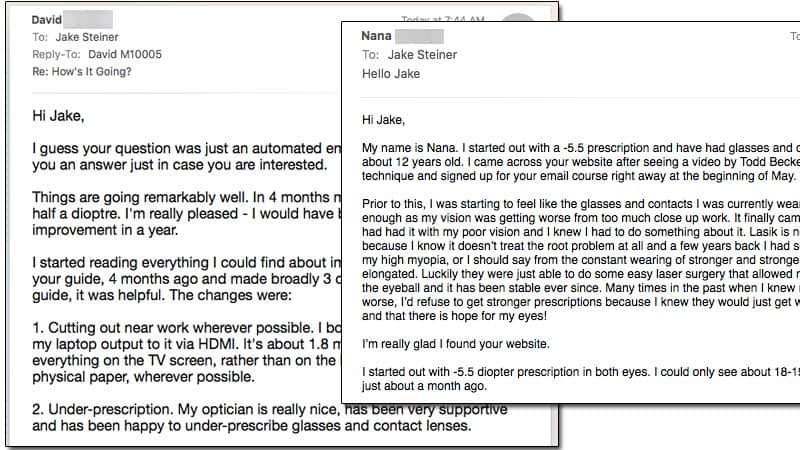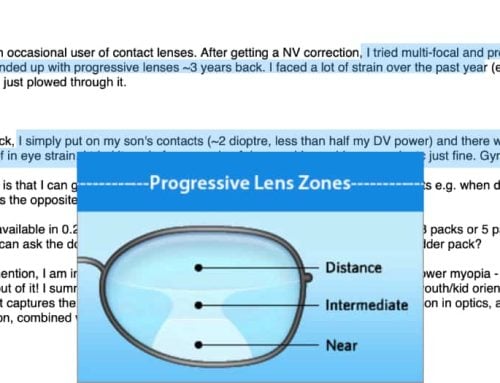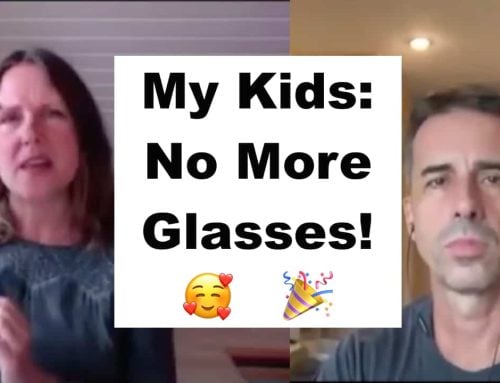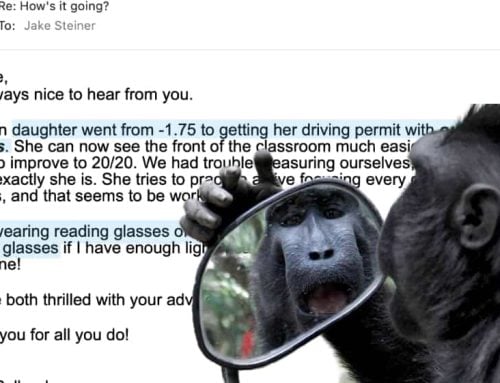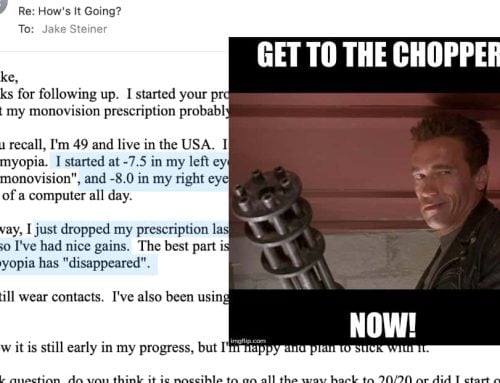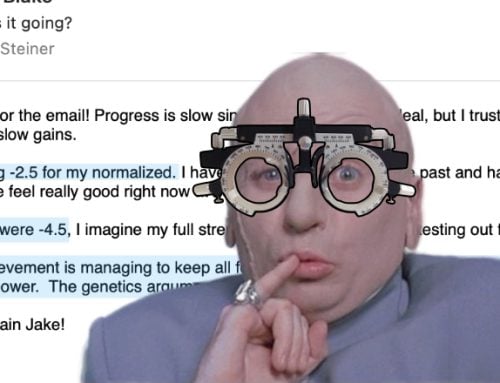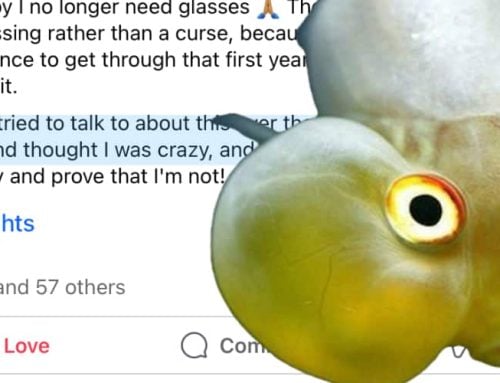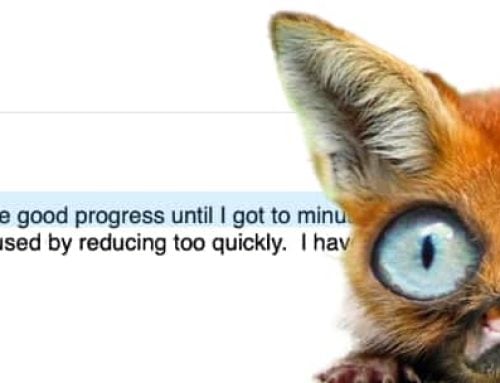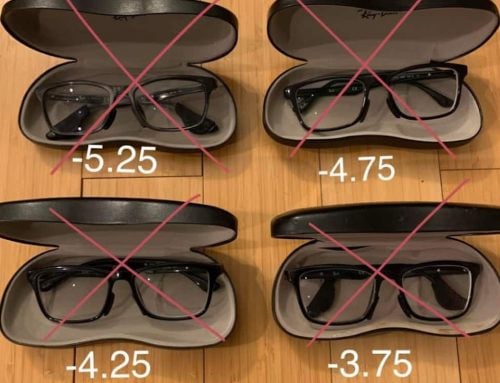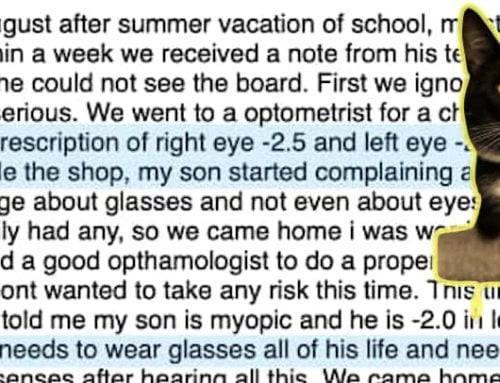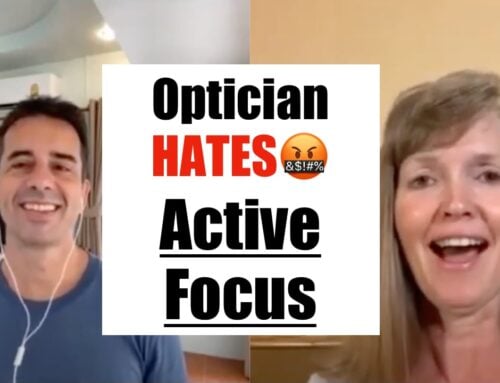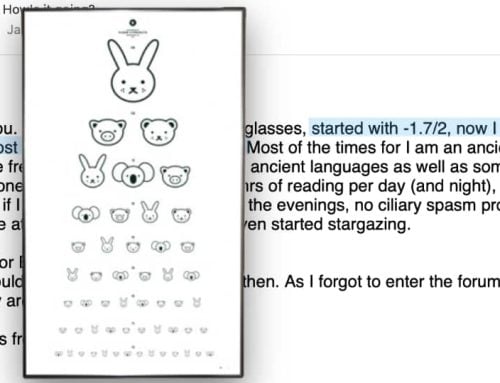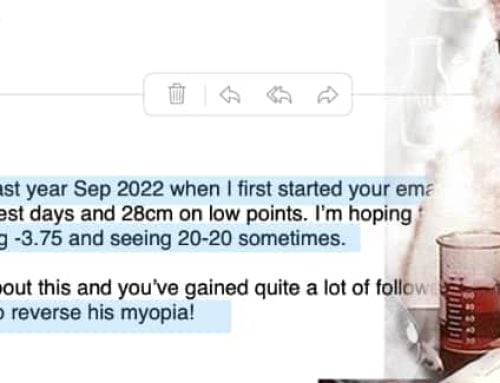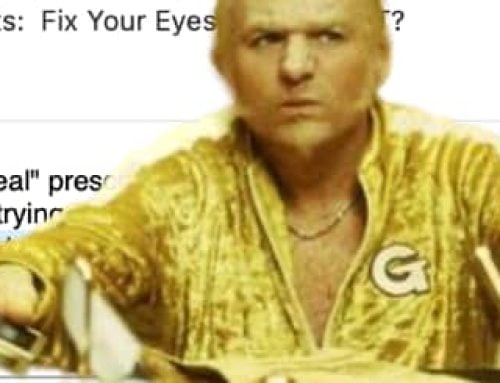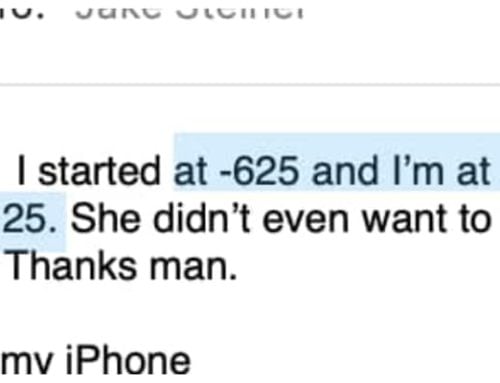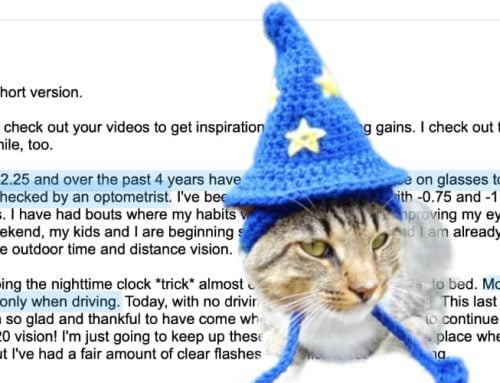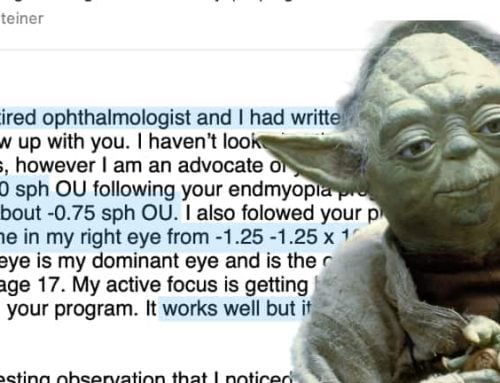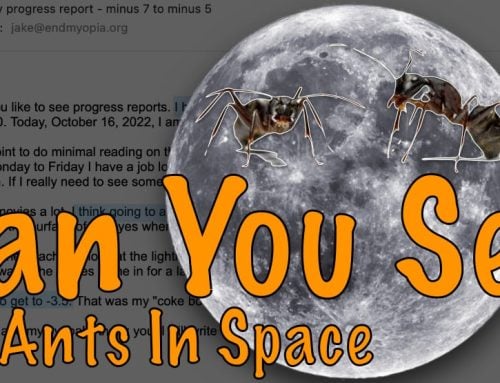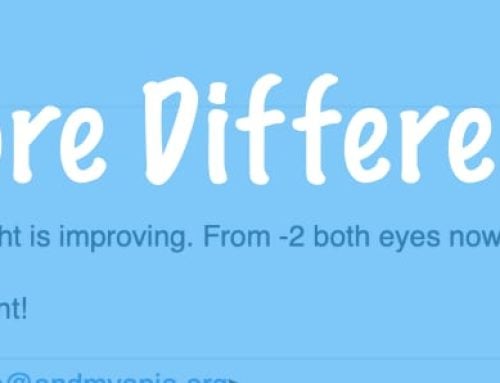Two reader e-mails today, both illustrating how small amounts of habit and lens changes can have a measurable positive impact on your eyesight.
Since they’re a bit long for screenshots, I copy/paste the text version here. First, David:
Hi Jake,I guess your question was just an automated email, but I thought I’d give you an answer just in case you are interested.Things are going remarkably well. In 4 months my eyesight has improved by half a dioptre. I’m really pleased – I would have been happy with that much improvement in a year.I started reading everything I could find about improving eyesight, including your guide, 4 months ago and made broadly 3 changes. Thanks for your guide, it was helpful. The changes were:1. Cutting out near work wherever possible. I bought a 43 inch TV and fed my laptop output to it via HDMI. It’s about 1.8 metres away and I try to read everything on the TV screen, rather than on the laptop screen or a mobile or physical paper, wherever possible.2. Under-prescription. My optician is really nice, has been very supportive and has been happy to under-prescribe glasses and contact lenses.3. Playing squash. I noticed from my prescription history that a period where I played quite a bit of squash, many years ago, coincided with a big improvement in my eyesight. I think that maybe the eye exercise of watching the ball go back and forth up and down the court may be beneficial. So I took up the sport again and have been really enjoying it.I have a couple of observations that you might find interesting.The first is that if playing ball games is indeed good for the eyesight then that could be an additional explanation of why children who spend more time outdoors tend to have better eyesight – children often play ball games when they are outside.The second is that I read the text of the controlled trial of under-prescription in children (the one that found that the children with under-prescribed glasses developed worse myopia than those with fully corrected glasses) and thought that it was flawed. The flaw, in my opinion, is that they didn’t hold constant the distance at which children read. As all the children started off with myopia, according to mainstream theory, they probably had a tendency to hold their books a bit too close. As their reading distance wasn’t held constant in the trial, presumably the children with the under-prescribed glasses would have simply held their books even closer still, and so would be expected to develop worse myopia as they would be combining hyperopic defocus with increased convergence strain.Best wishes.David
That speaks for itself.
It always boils down to simple, habit-based changes, to address the root causes of your myopia. They’re almost always simple and the results persistent (as long as you take the time to learn the how and why, first).
Next up Nana who already had a scary encounter with retinal detachment. What she has learned is very likely going to significantly reduce her risk of having another such experience, and could very possibly save her long term eyesight:
Hi Jake,My name is Nana. I started out with a -5.5 prescription and have had glasses and contacts since I was about 12 years old. I came across your website after seeing a video by Todd Becker on his print pushing technique and signed up for your email course right away at the beginning of May.Prior to this, I was starting to feel like the glasses and contacts I was currently wearing were not strong enough as my vision was getting worse from too much close up work. It finally came to the point where I had had it with my poor vision and I knew I had to do something about it. Lasik is not an option for me because I know it doesn’t treat the root problem at all and a few years back I had some retinal tearing from my high myopia, or I should say from the constant wearing of stronger and stronger lenses until my eye elongated. Luckily they were just able to do some easy laser surgery that allowed my retina to stick back to the eyeball and it has been stable ever since. Many times in the past when I knew my eyes were getting worse, I’d refuse to get stronger prescriptions because I knew they would just get worse. Now I know why and that there is hope for my eyes!I’m really glad I found your website.I started out with -5.5 diopter prescription in both eyes. I could only see about 18-19cm away from the page just about a month ago.Now, after a month of using the techniques you mentioned and slowly going back down to using my older glasses again along with using the active focus method whenever I can, I can see a little bit farther. I’ve also increased the amount of time spent outside which has helped on so many levels. I used to be really self-conscious about wearing glasses but it’s become really fun checking out new styles and ordering glasses online. I’ve been a long term contact lens wearer and since watching your videos and finding helpful information on your blog, I save them for when I’m doing sports outside and just using my distance focus.Here are my measurements:May 5/16Normalized L: -5 R: -5Differential L: -3.75 R: -3.75CM measure: 18-19 cmjune 3/16Normalized L: -4.5 R-4.5Differential L: -3.5 R: -3.5CM measure: 21 cmLast week I even tried reading the Snellen chart with my differential rx of -3.75 and with active focus, I could almost see to the 20/20 line and indoors!I’ve mentioned your website to others and some are interested while others seem like they don’t want to be bothered with the way things are now – I very much see this “learned helplessness” state of mind you mentioned in one of your video and it’s so unhealthy but I used to be like that! Well, not anymore I’m not! Thanks to you and your teams’ help.I do admit that sometimes it’s hard not seeing so clearly and a bit awkward but then I think about the long term benefits and how good it feels to see progressive improvements over time. Look forward to the process.Keep up the good work Jake and team!eternally grateful,Nana
That’s critical. The mainstream will never, ever talk to you about serious preventative measures. They have great tools to deal with the fallout created by years of abusing your eyes, truly impressive procedures to save your eyes at the last moment.
But unless you have too much money, a lot of faith in invasive procedures, and don’t care about long term side effects and recurrence, I suggest prevention, over just waiting it out.
Thanks to Nana and David for taking the time to write, you too reading this let me know how you’re doing, keep up those happy eye habits!
Cheers,
-Jake

